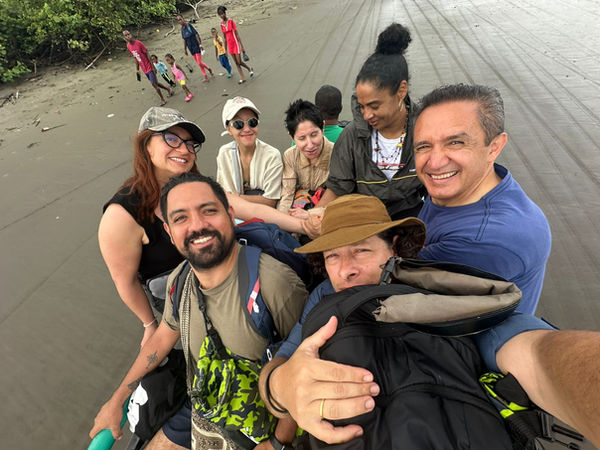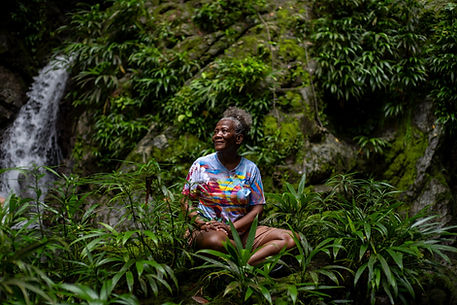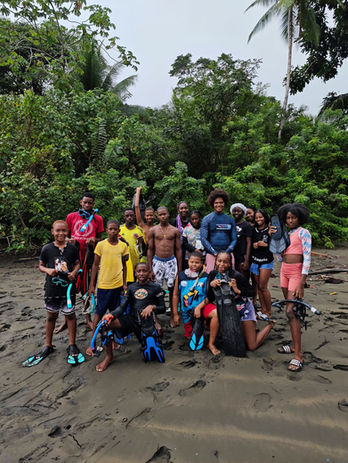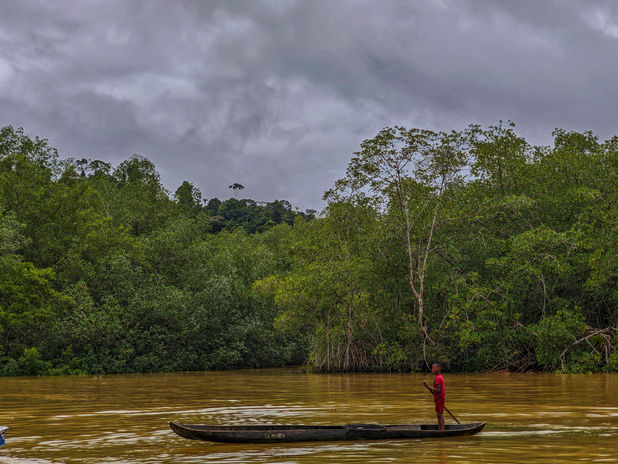
Living at the Rhythm of the Waves
From June 20–24 (2025), a team of eight researchers and cultural agents ventured into Colombia’s Pacific coast to live and experience life “at the rhythm of the waves.”
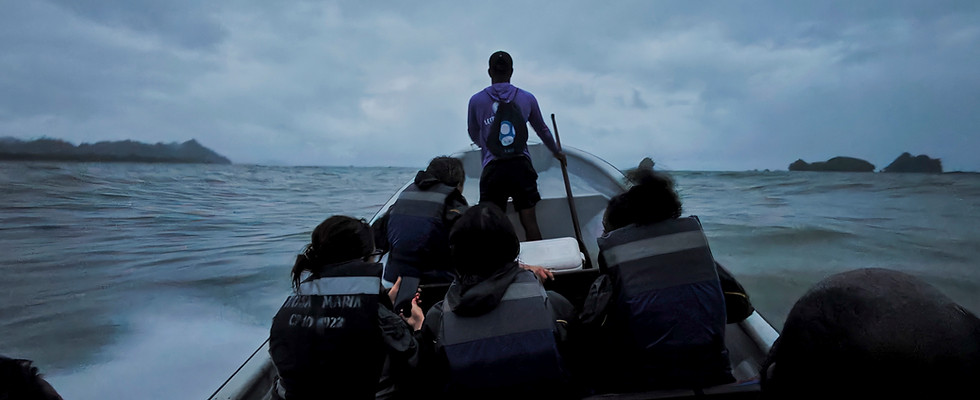
In June, a team of eight researchers and cultural agents ventured into Colombia’s Pacific coast from June 20 to 24 to live and experience life “at the rhythm of the tide.” Thanks to Josefina Klinger, Director of Mano Cambiada, we arrived in Nuquí to explore the territory guided by her. Among the inspiring initiatives we encountered was Veanvé, an Innovation Center she is building with the support of various organizations and donors—and which still needs additional support to become a reality.
With this premise of peaceful living, different waves began to reveal themselves:
A calm wave that allowed for the enjoyment of breathtaking landscapes between the sea and the jungle, joyful communities, carpets of red crabs, and the extraordinary food provided by the vast pantry that is the sea and the land of Nuquí.
A rough wave that shakes the boat in the middle of a storm; young people searching for new ways to make a living; hunger; the lack of a decent health center; concern over the advance of a capitalist idea of progress that devours everything in its path; pesca blanca—where in a single day, a fisherman might earn 5,000 USD by finding a floating package of cocaine in the ocean; the hardship of living between the jungle and the sea without knowing how to swim.
Living at the rhythm of the tide means thinking of solutions in proportion to the size of the wave, and it was there that we were able to learn from the best teachers—those who face the tides every day in this territory:
-
Mano Cambiada and the TAC project
-
Museo Melelé
-
The apnea school for children in Jurubirá and Nutría
-
The Nuquí chirimía band
-
The communities of Nuquí, Jurubirá, Utría, and Coquí
In Nuquí, the future is envisioned as a sustainable economy rooted in ancestral exchange practices such as:
“Mano Cambiada”: an ancestral local practice meaning “exchange of labour.” It is based on solidarity and peer relationships, rather than monetary value. Example: I offer to deliver a baby in exchange for being educated.
“Trueque”: direct exchange of goods and services. Example: I trade fish for salt.
“Minga”: a gathering of friends and neighbours to carry out communal work, free of charge.
In this corner of the Pacific, living at the rhythm of the tide is not just a metaphor—it’s a way to resist, imagine, and build. Nuquí reminds us that another economy is possible—one where value is measured in care, community, and shared knowledge.
